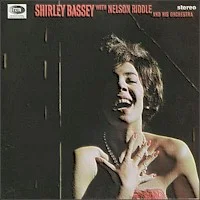Bitrate: MP3@320K/s
Time: 61:22
Size: 140.5 MB
Styles: Mainstream jazz
Year: 1999/2006
Art: Front
[5:08] 1. Scarecrow
[6:45] 2. Duke's Feeling Sad
[5:50] 3. Stolen Sweets
[3:02] 4. Jeepers Creepers
[4:27] 5. Music Maestro Please
[3:52] 6. With A Song In My Heart
[4:54] 7. Mood Indigo
[6:00] 8. Sherman Shuffle
[3:56] 9. Sweet Lotus Blossom
[4:44] 10. Mahogany Hall Stomp
[4:44] 11. Racing With The Moon
[4:54] 12. Un Hommage A Sidney Bechet
[2:58] 13. Everywhere You Go
Wilber has been heard with smaller ensembles, so it's good to find him with a larger, more interactive group -- a diversely bred bunch of Dixieland-to-swing mavens. Swedes Bent Persson (trumpet/cornet) and Lars Erstrand (vibes), Finnish multi-woodwindist Antti Sarpila, native Brit/Canadian resident vibist Peter Appleyard, straight Brits Dave Cliff (guitar) and Dave Green (bass) join Americans Wilber, trombonist Dan Barrett, pianist Dick Hyman and drummer Ed Metz, Jr. for this 13-track program of classic, early period jazz. Things start off with a tribute to Benny Goodman with his lesser known number "Scarecrow," a good swinger with Wilber's clarinet and alto firing up the band, making way for Green's swing-to-bop guitar accompanied by a background horn chart. Persson's clear Louis Armstrong influence rises during another solid swinger, "Mahogany Hall Stomp." That same stoic rhythm informs the guitar-driven, full-band unison melody on "Sherman Shuffle." An unusual, piano-led waltz treatment of "Mood Indigo" and Wilber's downtrodden blues on clarinet in "Duke's Feeling Sad" are all hat tips to Duke Ellington. Other dedication tracks showcase Wilber's wonderfully ribald soprano sax during his original, seductive, slow tango "Un Hommage a' Sidney Bechet" with Sarpila's soprano following along, and his alto sax á la Johnny Hodges for the Wild Bill Davis song "Stolen Sweets." Wilber's soprano and Sarpila's clarinet during the uptempo "With a Song in My Heart" duel away in counterpointed bliss. A medium-swing take on Vaughn Monroe's pop tune "Racing With the Moon" is a definite improvement on the original, featuring Wilber's alto again Hodges-like and Persson's pronounced trumpet shakes á la Armstrong. Wilber's wife Joanne "Pug" Horton sings four tracks in her slightly flat, Rosemary Clooney-type voice, the best of the four being the ballad "Music Maestro Please," and the most energetic being "Everywhere You Go." She's a bit strained during "Sweet Lotus Blossom," and her corniest performance is on "Jeepers Creepers." Wilber proves time and time again, especially during "Everywhere You Go" why he is an enduring jazz man, especially on clarinet and soprano sax. His bandmates each get brief solos here and there, but it is the group sound of this fine band that will make it worth your while. ~Michael G. Nastos
The nationalities include Finland (Sarpila), Sweden (Persson and vibist Lars Erstrand), Canada (Appleyard), England (Cliff and bassist Dave Green), and the U.S. (Wilber, Barrett, Hyman, drummer Ed Metz, Jr., and Horton).
Everywhere You Go There's Jazz









